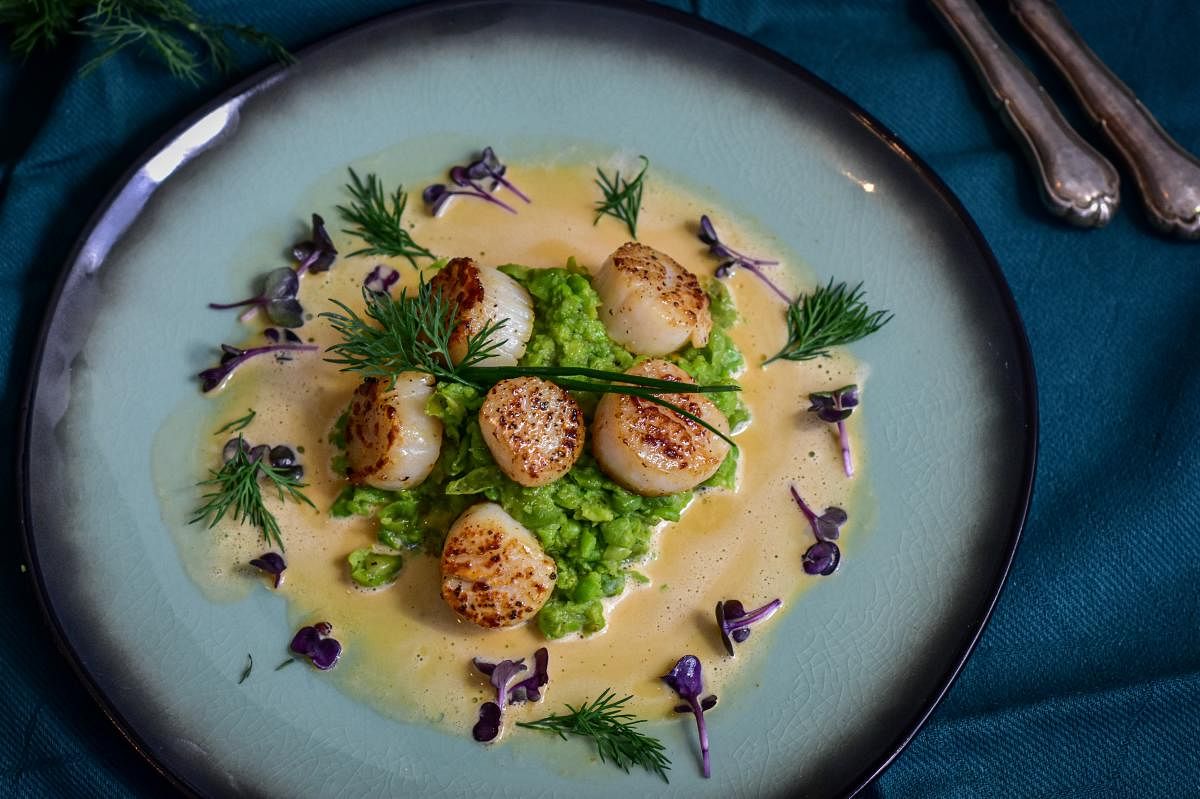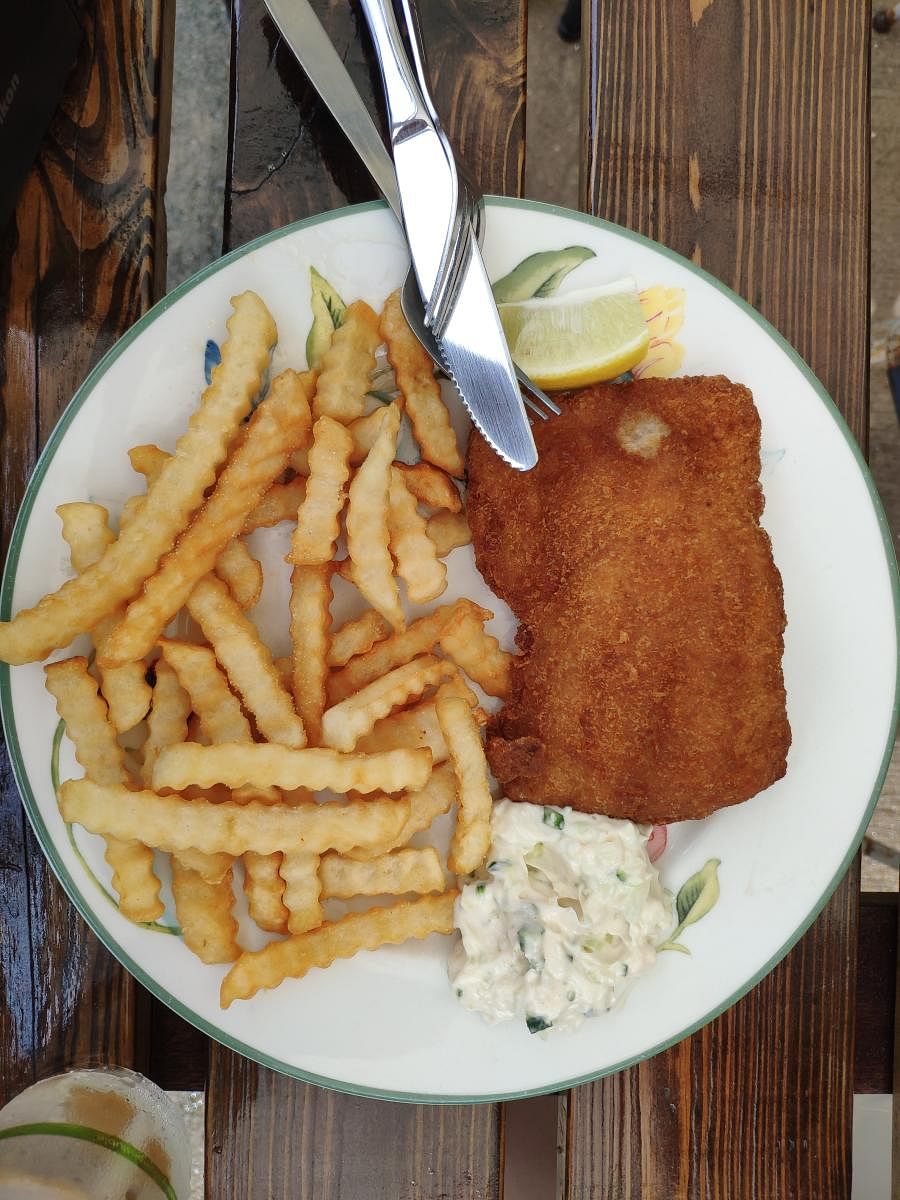

Despite being a victim of colonisation, I have always had a sneaking admiration for the British; which other country has the chutzpah to display stolen jewellery in the Tower of London and call it the Crown jewels? Or use the word “Great” before their name, as in Great Britain? So, Great Britain has three very different countries, England, Scotland and Wales, each with a rich tapestry of heritage and culture influencing its culinary traditions.
For the most part, English food is a joke: bangers and mash, fish and chips, spotted dick (don’t ask), toad in the hole (never mind) and mushy peas. But one must look beyond these staples: thanks to the Romans, they have cherries and stinging nettles to enliven salad, peas to make mushy peas and cabbage to be boiled to death until its sulphuric odour permeates the curtains… you get the picture. The English owe a major debt to Caesar who taught them about good roads and decent wine. The next set of invaders was the Saxons who knew a thing or two about farming: they channelled their inner Simon & Garfunkel and planted parsley, sage, rosemary and thyme from Land’s End to John O’Groats. That noble quartet of herbs is the saving grace of a stodgy Irish or English stew. The next in line was the Vikings and Norsemen who probably sampled fish and chips at the local chippie and promptly beheaded the cook. “Petersen, go back to ze ship and bring me the smoker, we will teach these barbarians what to do wiz herring and salmon, ya?” I mean seriously, who gave the English their breakfast kipper? Certainly not Anne Boleyn, it’s got to be the Vikings. Scotland is justifiably famous for two things: whiskey and smoked salmon, and while the former is due to water, geography and ingenuity, the latter is distinctly Scandinavian in origin. Many moons ago, thanks to a Rotary scholarship, I spent a few months in Sussex and Surrey experiencing British life from the inside looking out; we stayed at homes, not hotels.
My host in Farnham was a typical country squire down to the pipe, leather patches on his tweed jacket and an abiding suspicion of spice. After five days of fish, chips, mushy peas, ploughman’s supper (bread and cheese) and baked beans, I was ready to bathe in bisibele bath, if you will forgive an atrocious pun. There is nothing more English than fish and chips: deep fried haddock, encased in crispy beer batter, smothered in salt and soused with vinegar, wrapped in the Times and eaten at a picnic table on a cold, rainy day: what’s not to like? Until the 80s the British were quite content to scarf down vast quantities of the stuff; it’s only now that they use polenta, corn chips, garlic and dill to vary the monotony of flour and eggs. Potatoes came to England somewhere in the 17th century with tobacco, courtesy of Sir Walter Raleigh. Fish and chips became the equivalent of our anna-saaru as the go-to meal of the industrial north.
Apparently, there are 10,500+ fish and chips shops in the UK and the British consumed nearly 300 million servings of fish and chips in 2015 which is around six servings for every man, woman and child in the country. So, to rewind to my host: having subjected my palate to systematic abuse for a week, I volunteered to cook a simple meal of rice, mutton curry, dal and spinach for my hosts. “Oh dear,” fretted my hostess, “I’d better get some fish and chips for Norman, he’s never even eaten garlic in his life.” The only advice I’ve managed to retain from my scouting days is the motto: “Be prepared”, and to this end, I’d packed some East Indian bottle masala in my suitcase. One of the side effects was that I smelt a bit like a curry house, but I digress. Maybe it’s just absence that makes the heart grow fonder but the curry was an unqualified success: there was a tiny portion left which my hostess put in the fridge. Would you believe it; the sneaky Norman had snuck down at midnight and polished off the leftovers.
PS: Now that Rishi Sunak is in charge, I hope he settles this chicken tikka masala business once and for all. Rather than this illegitimate offspring with malai and leftovers, let the Brits figure out Chicken Chettinad. After so many years in the culinary wilderness, they deserve a treat!
(The author is an old Bengalurean and impresario of comedy and musical shows who considers himself fortunate to have turned his passions — writing and theatre — into a profession.)